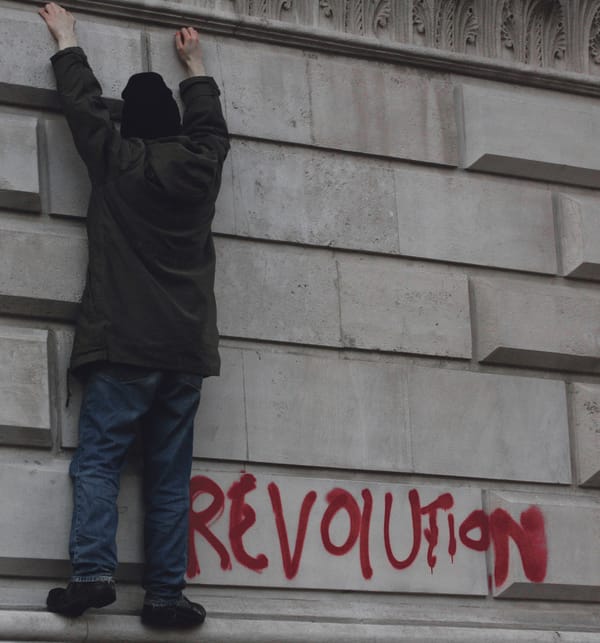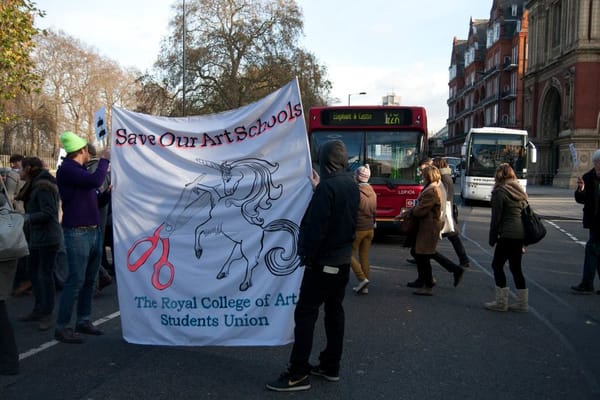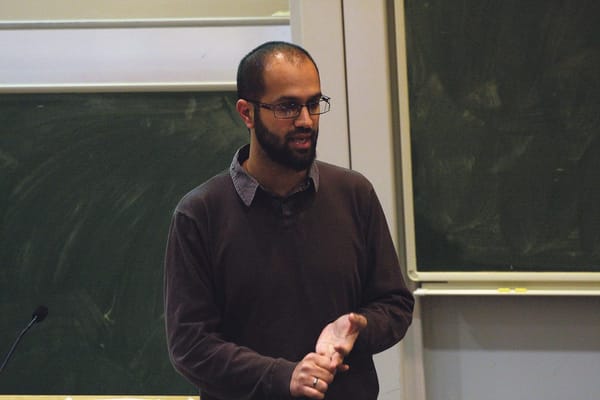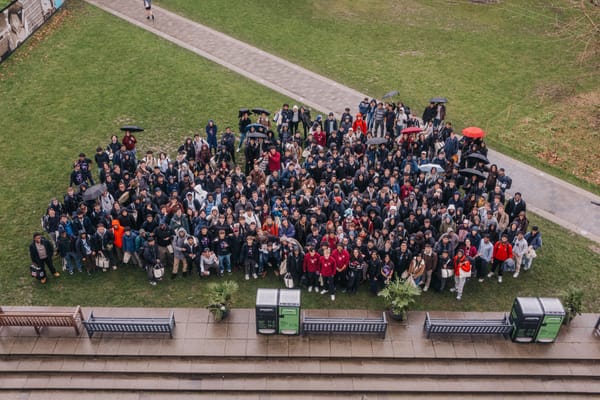So what happens at an occupation?
As lecture theatres around the country play host to student activists, Ian Wei reports from the UCL occupation
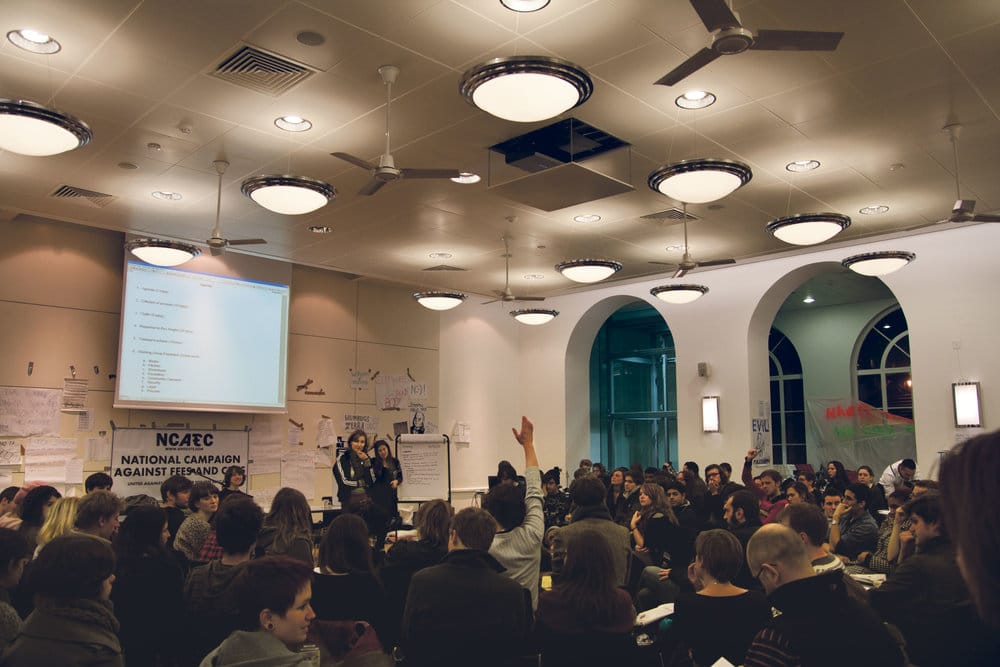
As the parliamentary vote on tuition fees draws nearer, the intensity of the student protests against higher fees, education cuts and the scrapping of the EMA has rapidly increased. With occupations of university buildings happening all across the country, the reactionary protests have morphed into a new grassroots movement of students, academics, school kids and trade unionists. The defining images of the protests are still pictures of violence and chaos from Millbank Tower on the 10th of November; but a visit to the UCL occupation is proof of how unrepresentative that incident was.
Upon entering the occupation in the Jeremy Bentham room at UCL, there are three details which I immediately notice. First is the sheer number of people who are in the room. Second is the variety of the protestors; looking around I can see students from different ethnic backgrounds, post graduates and staff. The last and most striking detail is what the protestors are doing.
Picture the scene. A protestor stands up in a room giving a preamble to the issue at hand to an audience of about one hundred. Quiet murmuring can be heard all around. A polite hand is raised and the microphone is handed over. The new speaker stands up and starts talking passionately into the microphone; audience members wave their hands in the air to show approval. Suddenly, as the speaker approaches a controversial point, hands shoot up, and the microphone is passed on quickly. This is democracy at its purest; where everyone is involved in the decision making process and no opinions are ignored. Similar events are happening all across the country – these are the ‘New Student Protesters’.
These thoughtful, articulate activists are a far cry from the thuggish brutes depicted in the media. There is no sense of unyielding obstinacy and discussion is encouraged. Indeed, disagreements happen frequently, and heated discussions follow, but the atmosphere is anything but hostile.
That is not to say that the underlying purpose of the occupation has changed. The protestors still feel extremely strongly the issue of the tuition fee cap and the cuts to education funding. But as internal support for the occupation has increased, the demands of the occupation have changed to reflect that. A student explained that since the occupation enjoys support from some of the academics and the support staff, the demands have changed to tackle other issues as well; such as the wage of the support staff and the job cuts of academics.
The organization of the occupation is very impressive. Protestors are split into groups which tackle certain issues, reporting back to the main body of protestors at each general meeting. And yet there is no leading figure organizing the whole of the occupation. Every decision is made via a consensus or voting system, truly reflecting the views of the majority. From speaking to several students, it is clear that this system is working well. They explain to me that they feel as though all of their actions contribute directly to the movement, and consequently any successes are much more satisfying.
Integral to this feeling of solidarity is the overwhelming show of support from other universities. Support messages from universities across the UK, such as Oxford, Newcastle and Leeds, and even from universities abroad, such as Sydney and Pisa, are plastered all across the walls. The occupation also hosts workshops on peaceful forms of protests which students from across the UK regularly attend. The message is clear; ‘We are not isolated. We are part of something much, much bigger-something that could make a difference’.
The scale of the occupation has also attracted visitors from across the country. During my visit, I met students from Manchester, Nottingham and Brighton who had all come to show their support of the movement. It is not just students either; media, representatives of the trade unions, feminist groups, public figures (including Polly Toynbee, Billy Bragg and Emmy the Great) and socialist organizations all frequently visit the occupation. Speaking to a representative of a socialist organization, who would not clarify which organization he was representing, believes that they can use the momentum gained by the student protests to point out other perceived injustices in the coalition government’s policy; such as public sector job cuts.
It is clear that lessons have been learnt from the NUS marches. The protestors were careful of what was being said in my presence, and some of the people were reluctant to talk to me until I explained that I was from a student newspaper. Offers from media organizations for coverage of active protests are considered cautiously, after the coverage of the NUS protest march. In general the protestors understand the importance of a good public image. I asked a student whether he felt any resentment toward the media; he shrugged and said that while the media coverage was skewed, he believed that the publicity generated by the controversial pictures really helped bring the issues into the spotlight.
Looking around the room, it is clear that the initial response has been good. But what about in two, three, or even four weeks time? Are there any plans to stop protesting? Talking to several students, they seemed resolute to keep protesting until the issues which they are concerned about are addressed. One student grimly stated that she is prepared to “go down fighting”.
To see this level of commitment, passion and enthusiasm from a generation often labelled as disinterested and fickle is truly awe inspiring. Even if you do not agree with the reasons for the protests, even if you do not agree with the protest methods; the unity and solidarity shown by these ‘New Student Protestors’ is something which you can not help but admire.


